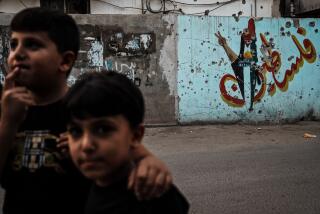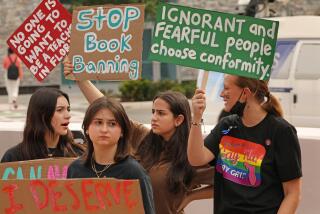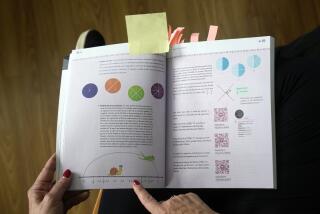A Victory for Japanese History
- Share via
“A country whose textbooks lie . . . will inevitably collapse.” Japan’s Supreme Court cited that warning from novelist Ryotaro Shiba in ruling that the Education Ministry was wrong in ordering a textbook author to delete accurate descriptions of atrocities committed by Japanese forces during World War II.
The court’s 3-2 decision fell short of entirely freeing Japanese textbooks from government screening, but it marked another move against the rewriting of history that has, in part, kept Japan from being trusted fully by neighboring countries. In 1982, China, South Korea and other Asian nations protested Tokyo’s whitewashing of its wartime aggression. Until the late 1980s, Japanese textbooks were typically evasive, ambiguous or silent in regard to what happened in the 1930s and 1940s.
The Supreme Court ruled on a case that was brought in 1965 by historian Saburo Ienaga, who protested the Education Ministry’s demand that he change his description of the imperial army’s invasion of China to an “advance” and eliminate references to Japanese soldiers’ rape of Chinese women. He was also ordered to delete a reference to a military unit specializing in bacteriological warfare that conducted gruesome medical experiments on Allied prisoners of war in Harbin, China.
Ienaga’s long legal battle, which harmed his academic career, had helped spark a national debate on textbook censorship. Last spring, references to the bacteriological experiments and other wartime misdeeds were added to middle and high school textbooks.
Japan is finally starting to accept responsibility for the atrocities perpetrated by its forces, something Germany did decades ago. Since 1993, Japanese prime ministers have apologized on behalf of the government, and the emperor has expressed remorse and regrets for the nation’s wartime acts and the suffering and tragedy they brought to many countries. This welcome candor has been a long time coming.
More to Read
Sign up for Essential California
The most important California stories and recommendations in your inbox every morning.
You may occasionally receive promotional content from the Los Angeles Times.













